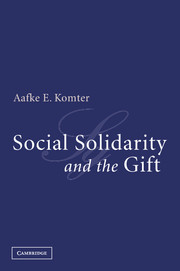4 - Women, Gifts, and Power
Published online by Cambridge University Press: 24 November 2009
Summary
It is not that agents “create” the asymmetry; they enact it. In summary: being active and passive are relative and momentary positions; in so far as the relevant categories of actors are “male” and “female” then either sex may be held to be the cause of the other's acts; and the condition is evinced in the perpetual possibility of the one being vulnerable to the exploits of the other or able to encompass the other. The conclusion must be that these constructions do not entail relations of permanent domination.
(Marilyn Strathern 1988: 333–334)Since Mauss and Malinowski the concept of “the gift” has been one of the main issues in anthropological research in non-Western cultures. An important question is whether gender plays any role in practices of gift exchange and, if so, what the nature of this role might be. The older anthropological contributions seem to be based on the assumption that women do not have any significant role in gift exchange. While Malinowski recognizes that women take a prominent part in certain ceremonial actions (1950 [1922]: 37), he does not mention any active female part in gift exchange; all his examples involve men. Writing some decades after Malinowski, Lévi-Strauss (1961 [1949]) draws attention to the practice occurring in many non-Western societies, that of exchanging women as the supreme gift. The prohibition of incest functions as a rule of reciprocity among men offering their sisters as marriage partners to other men outside their own clan.
- Type
- Chapter
- Information
- Social Solidarity and the Gift , pp. 76 - 98Publisher: Cambridge University PressPrint publication year: 2004

